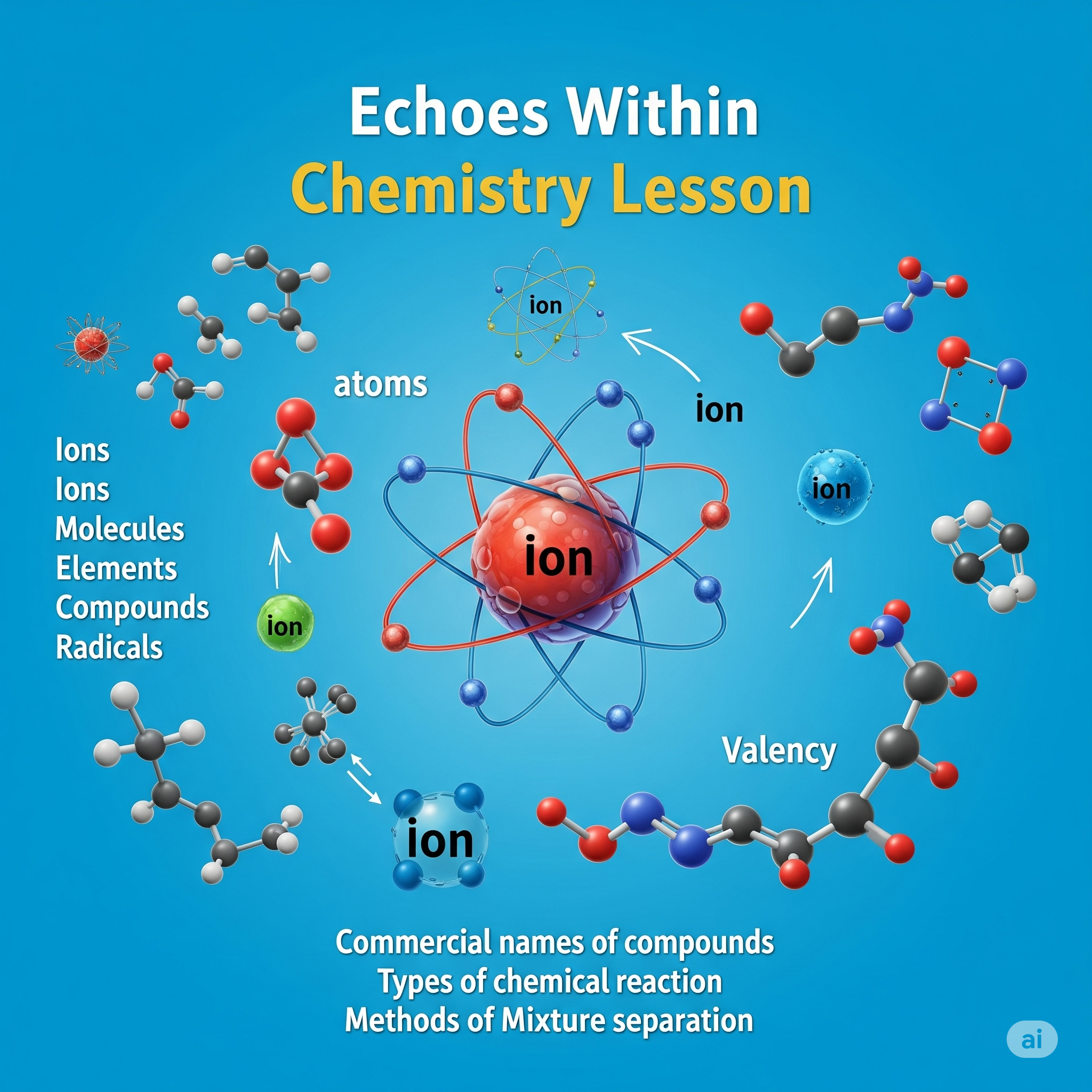
Here is a summary note for MCQ preparation for the lesson:
“General and Language of Chemistry”
(Covers: Atoms, Ions, Molecules, Elements, Compounds, Radicals, Valency, Commercial names of compounds, Types of Chemical Reaction, Methods of Mixture Separation)
1. Atom, Molecule, Ion
-
Atom: The smallest unit of an element that retains its properties. Eg: H, O, Na.
-
Molecule: A Combination of two or more atoms (same or different). Eg: O₂, H₂O.
-
Ion: Charged particles.
-
Cation: Positively charged (Na⁺, Ca²⁺)
-
Anion: Negatively charged (Cl⁻, SO₄²⁻)
-
2. Element and Compound
-
Element: Pure substance made of only one type of atom. Eg: Iron (Fe), Oxygen (O₂).
-
Compound: Substance formed by the chemical combination of two or more elements in a fixed proportion. Eg: H₂O, NaCl.
-
Molecule of Element: O₂, H₂
-
Molecule of Compound: CO₂, NH₃
3. Radical and Valency
-
Radical: A Group of atoms that behaves like a single atom in chemical reactions. Can be positive or negative.
-
Eg: OH⁻, SO₄²⁻, NH₄⁺
-
-
Valency: The Combining capacity of an atom or radical.
-
Eg: H (1), O (2), N (3), C (4), SO₄ (2), Cl (1)
-
4. Naming Compounds (Commercial Names)
-
H₂O – Water
-
NaCl – Table salt
-
CaCO₃ – Limestone/Marble/Chalk
-
NaHCO₃ – Baking soda
-
Ca(OH)₂ – Lime water
-
Na₂CO₃ – Washing soda
-
HCl – Hydrochloric acid (muriatic acid)
5. Types of Chemical Reactions
-
Combination Reaction: A + B → AB
-
Decomposition Reaction: AB → A + B
-
Displacement Reaction: A + BC → AC + B
-
Double Displacement Reaction: AB + CD → AD + CB
-
Neutralization: Acid + Base → Salt + Water
-
Combustion: Fuel + O₂ → CO₂ + H₂O + Heat
6. Methods of Separation of Mixtures
-
Evaporation: For salt from saltwater
-
Filtration: Insoluble solids from liquids
-
Distillation: Separating two miscible liquids
-
Decantation: Solid-liquid separation after sedimentation
-
Centrifugation: Fine solid particles from liquid
-
Sublimation: Separating a solid that sublimes (e.g., camphor, iodine)
-
Chromatography: Separation of different dyes/pigments
-
Magnetic Separation: Iron from a mixture
🧠 Tips for MCQs:
-
Know the symbols and formulas well.
-
Be clear about valency rules and how to write chemical formulas.
-
Identify radicals and their charges quickly.
-
Remember the types and examples of chemical reactions.
-
Understand practical methods of separation with suitable examples.
